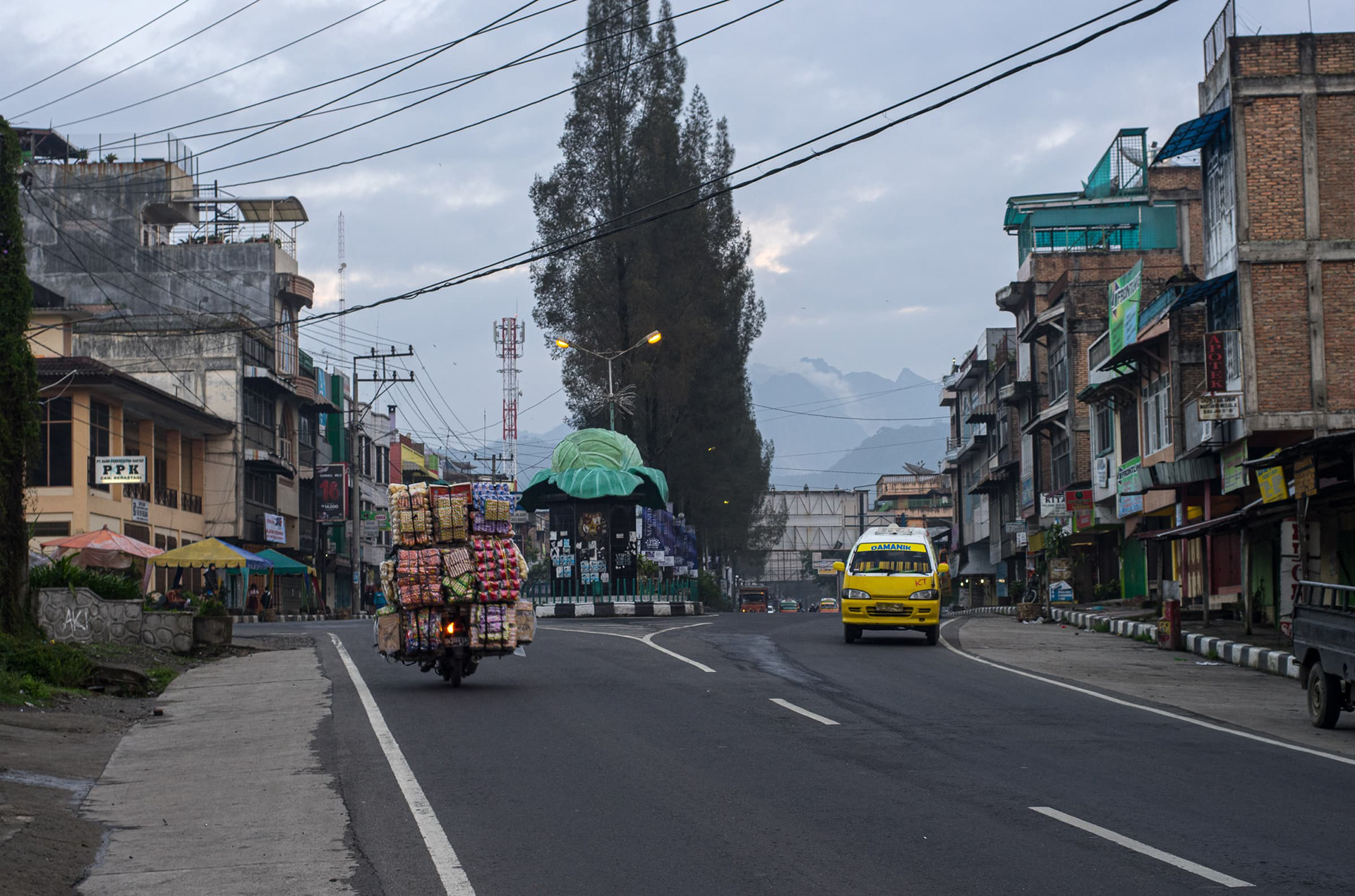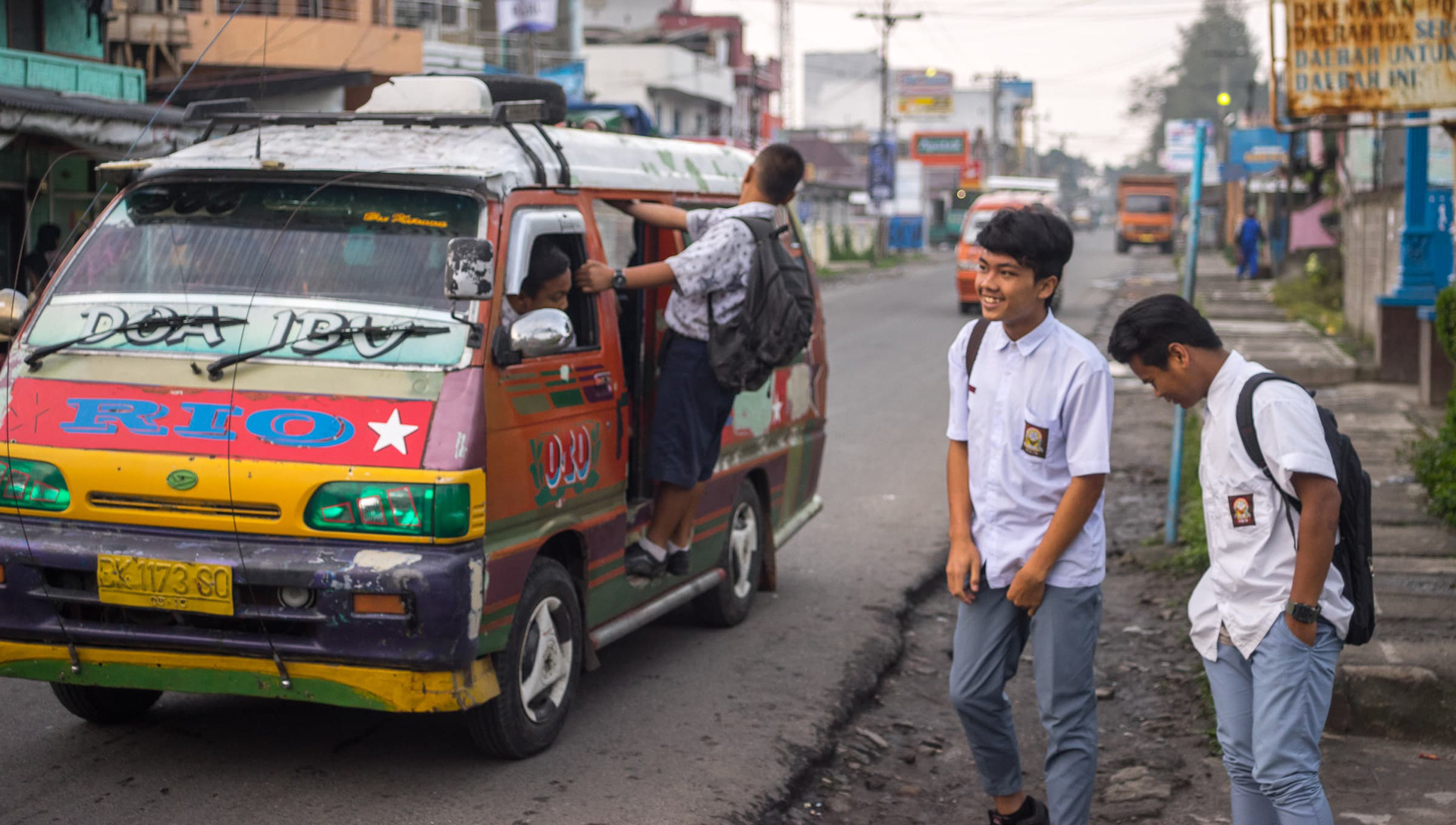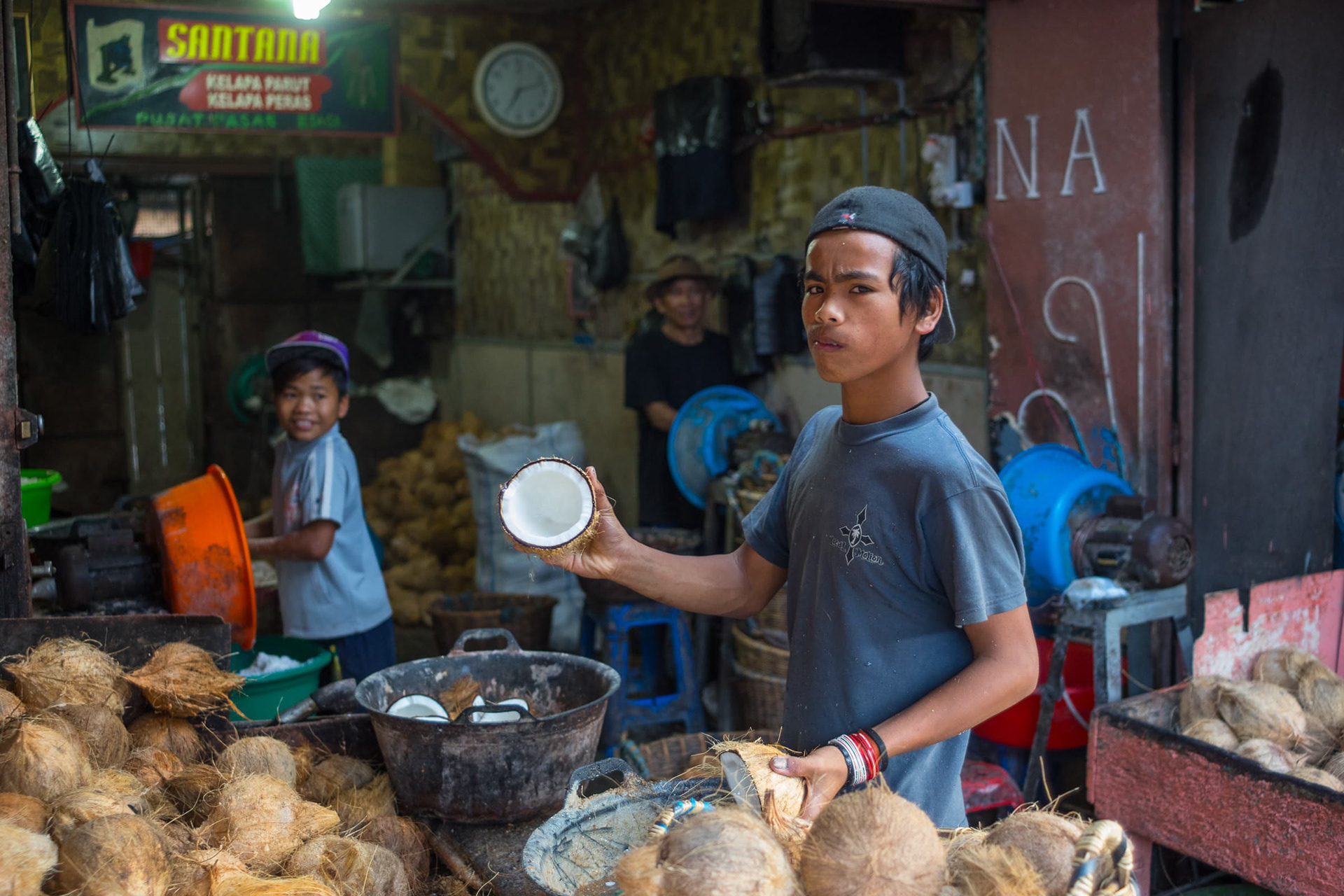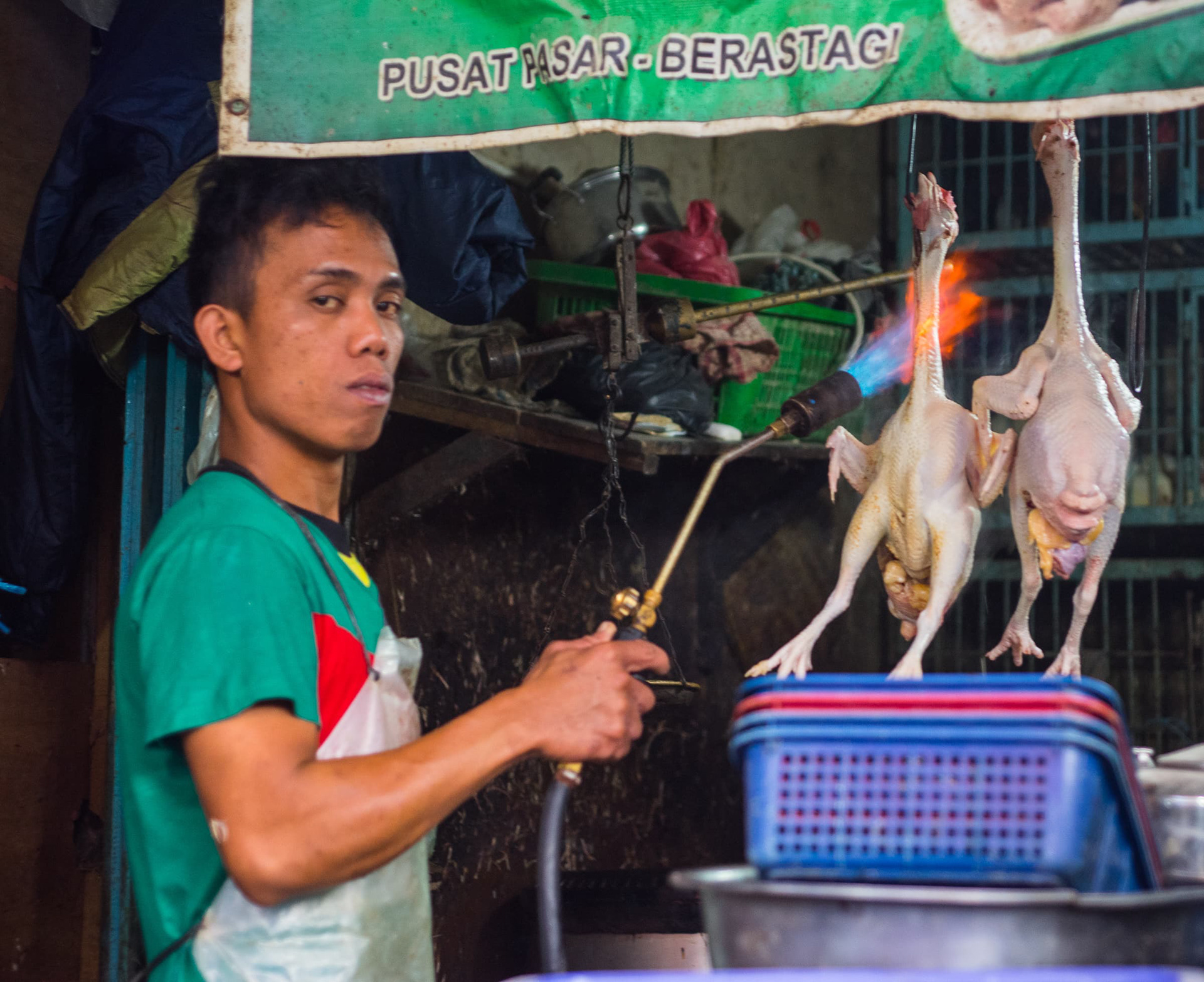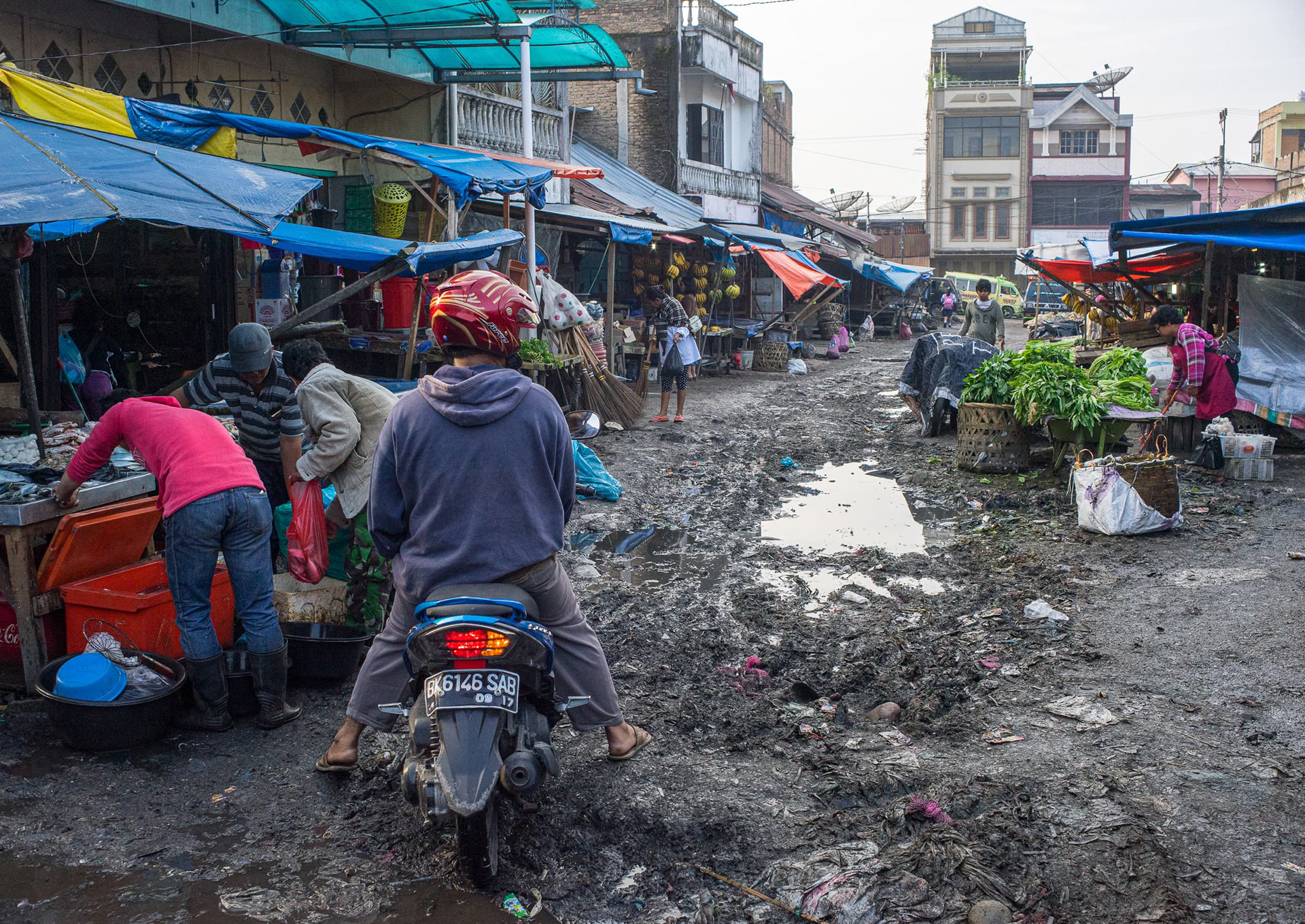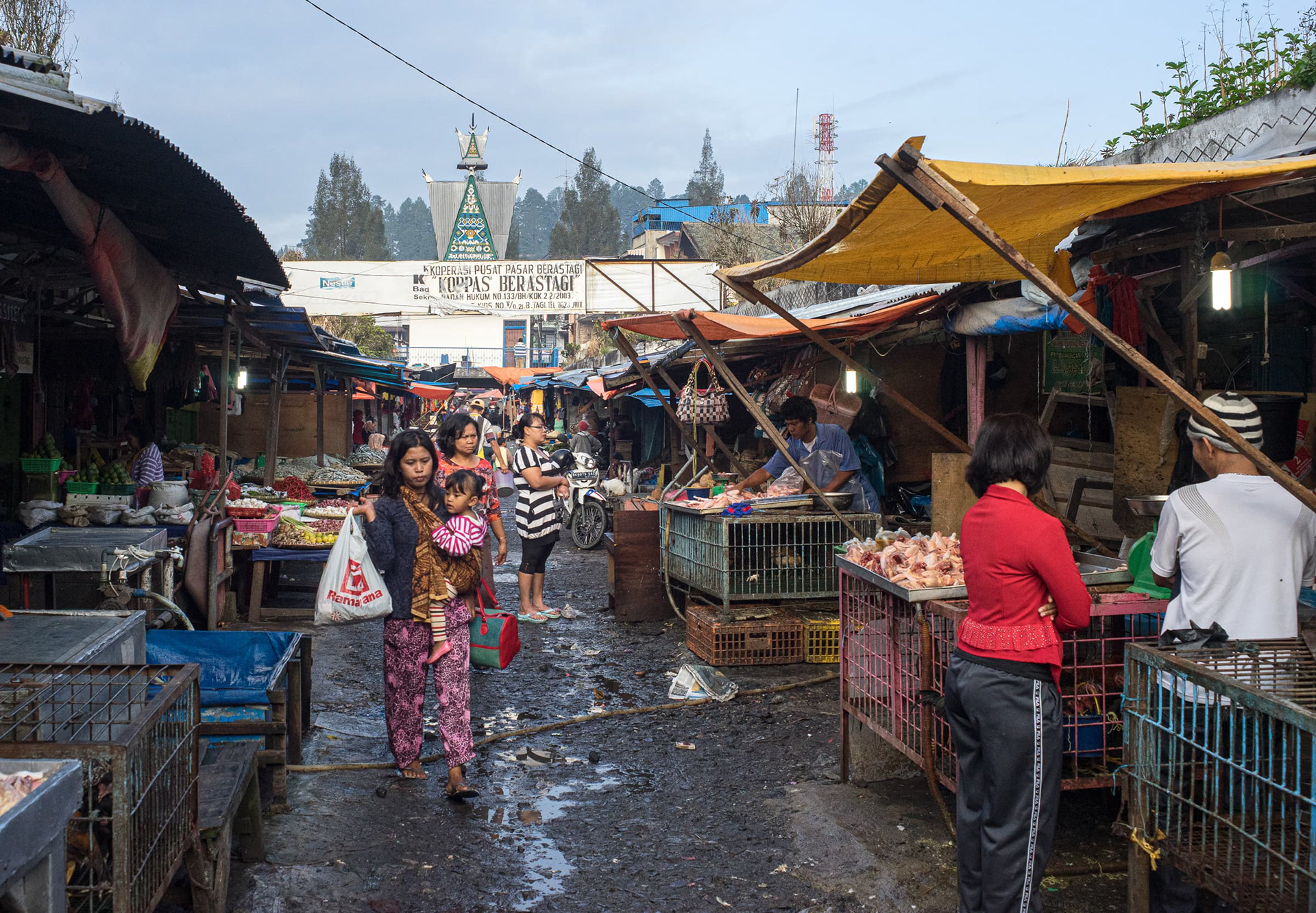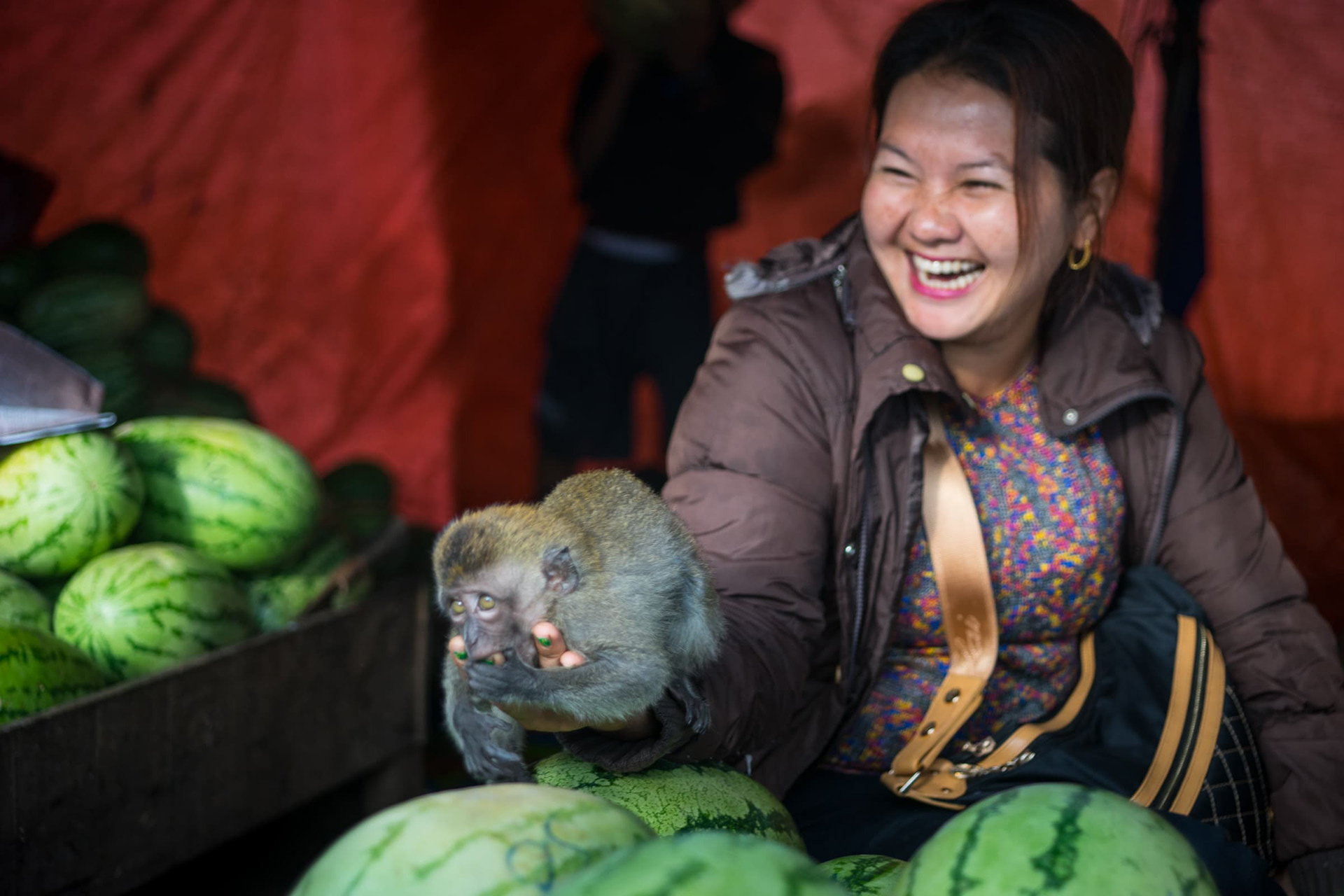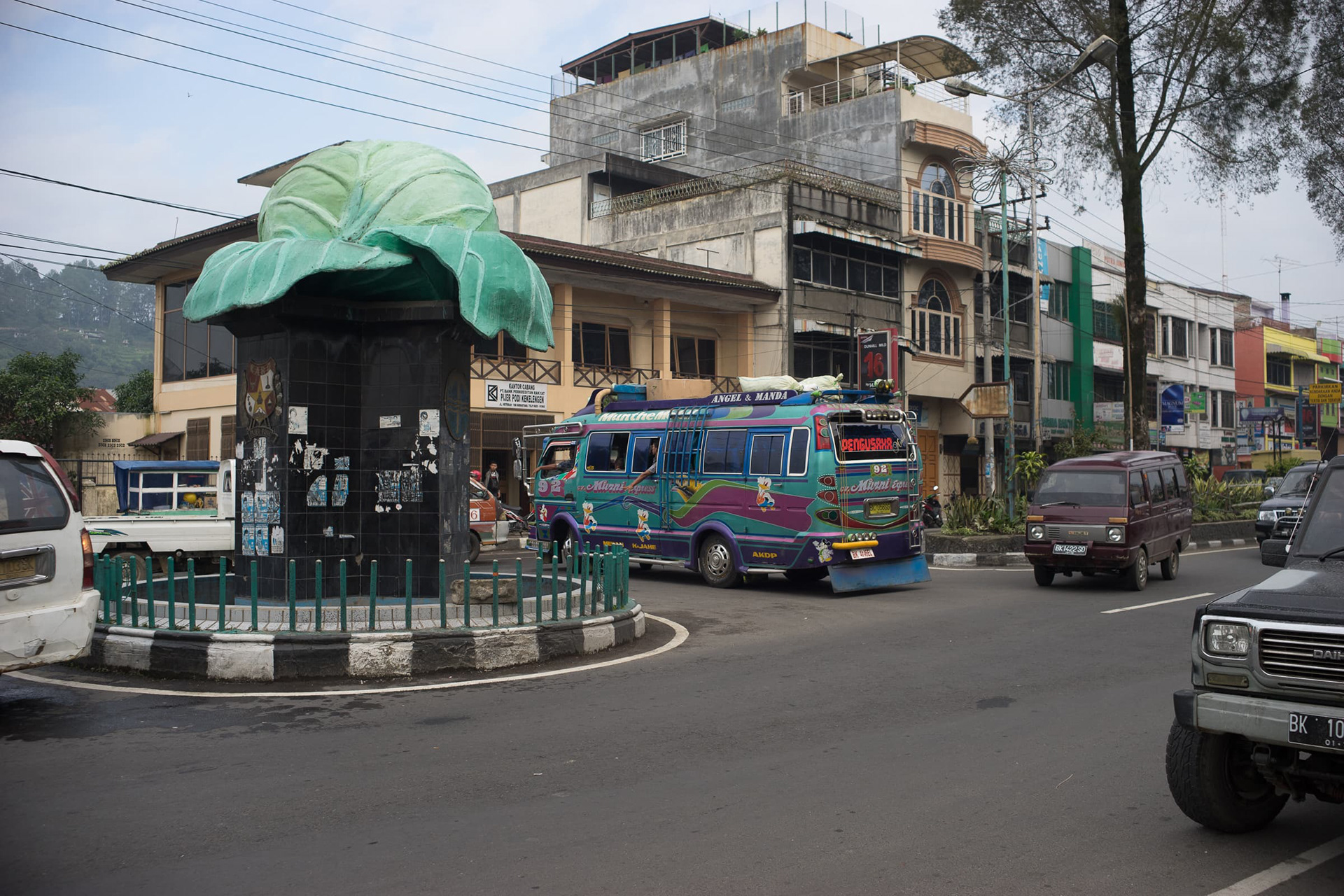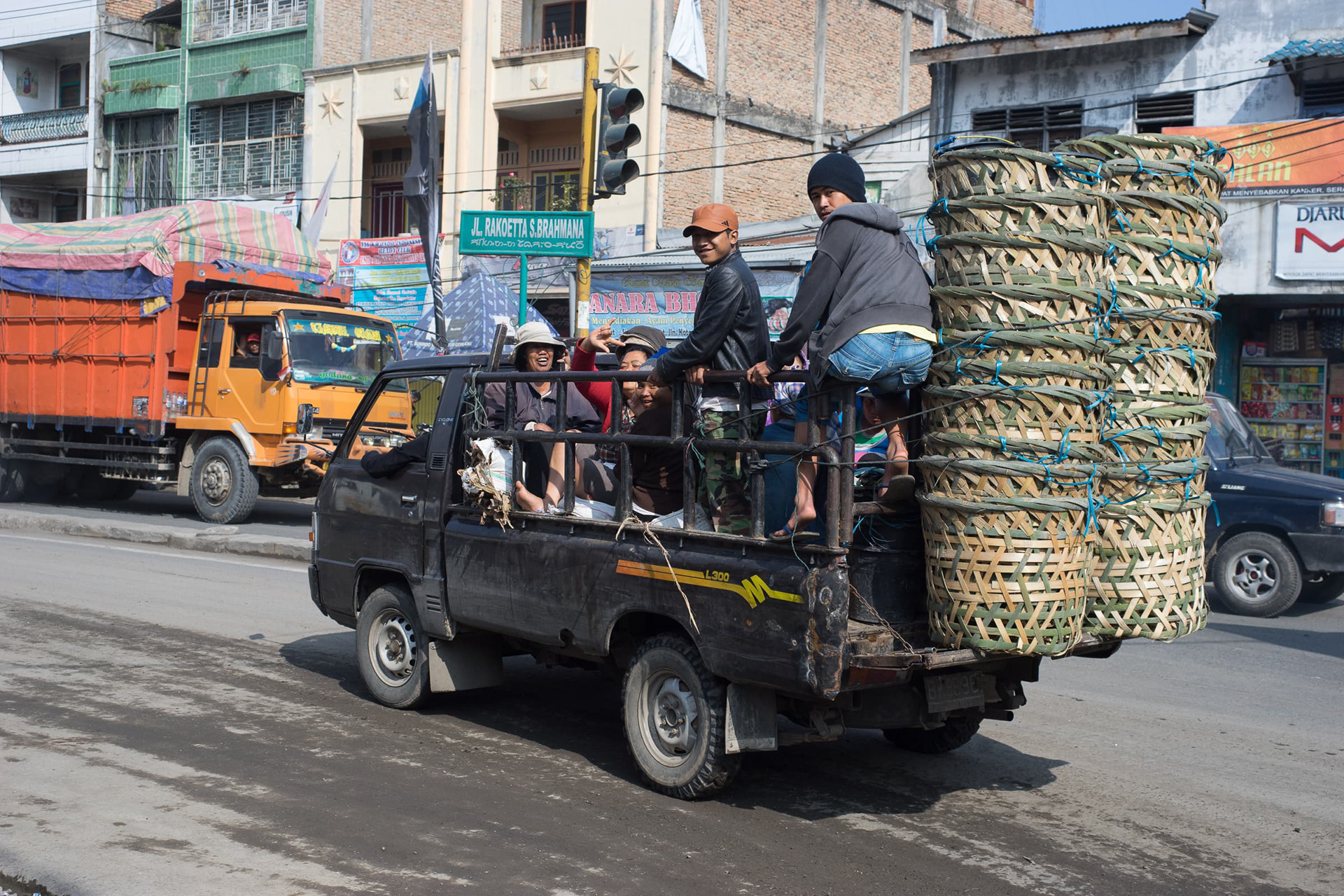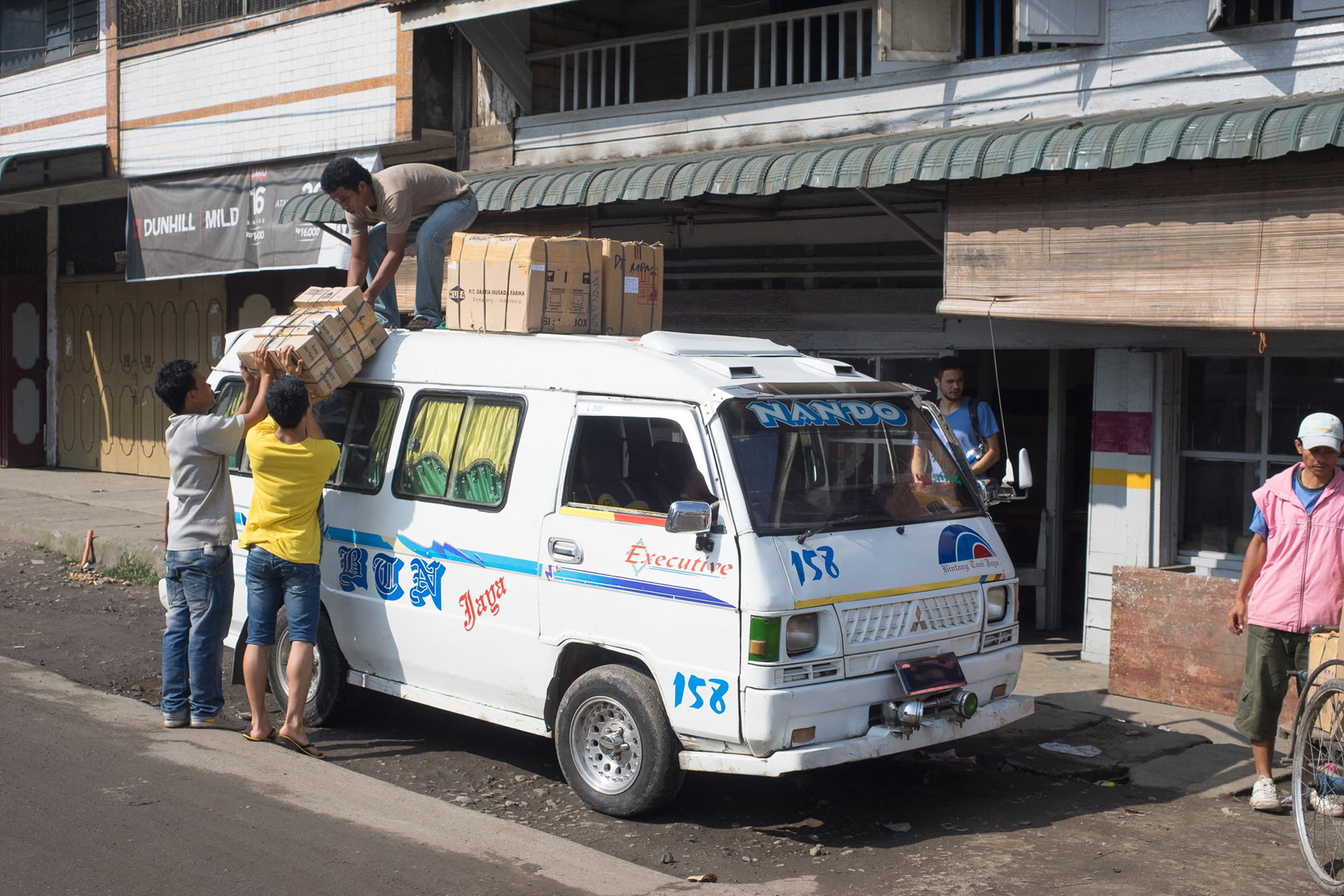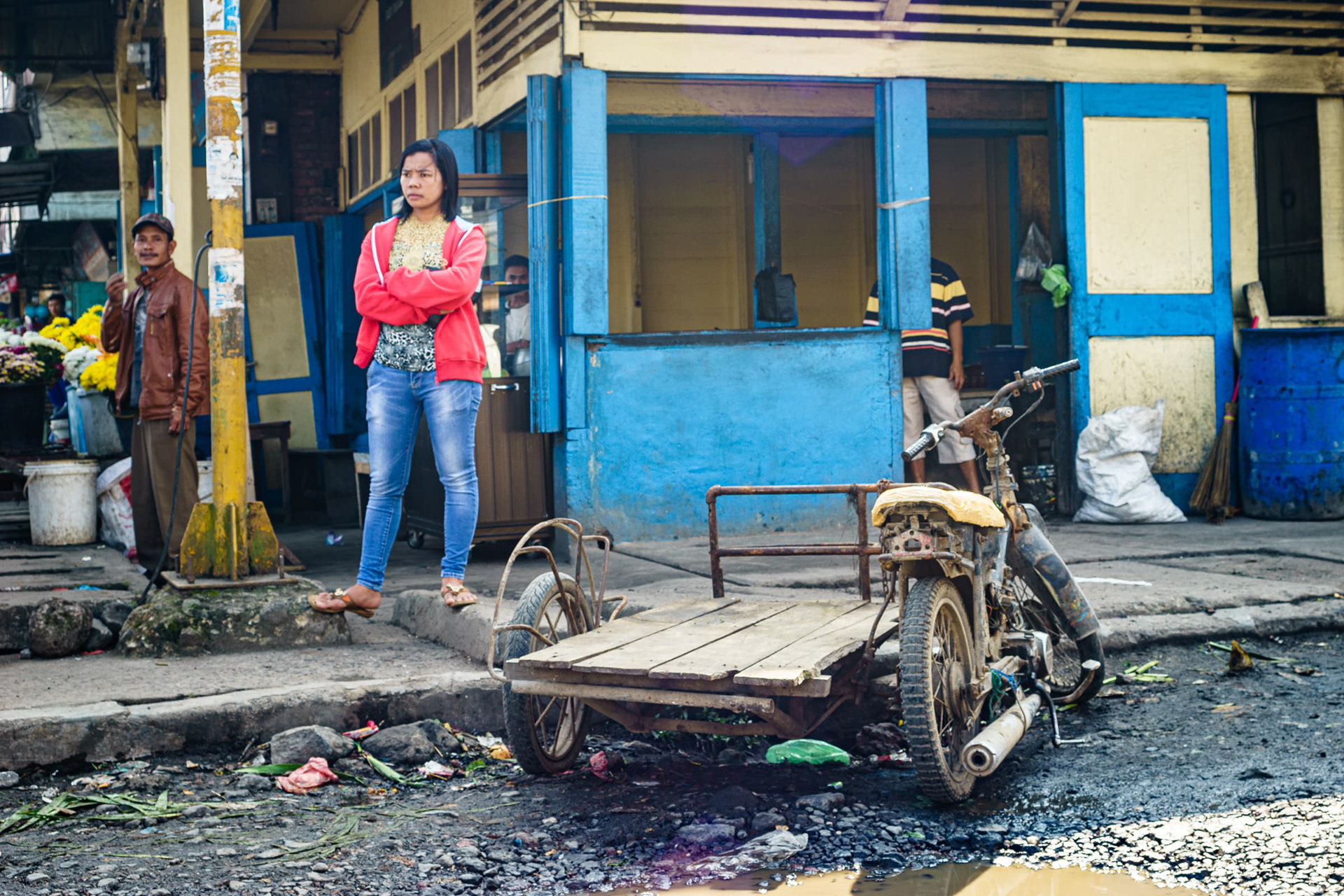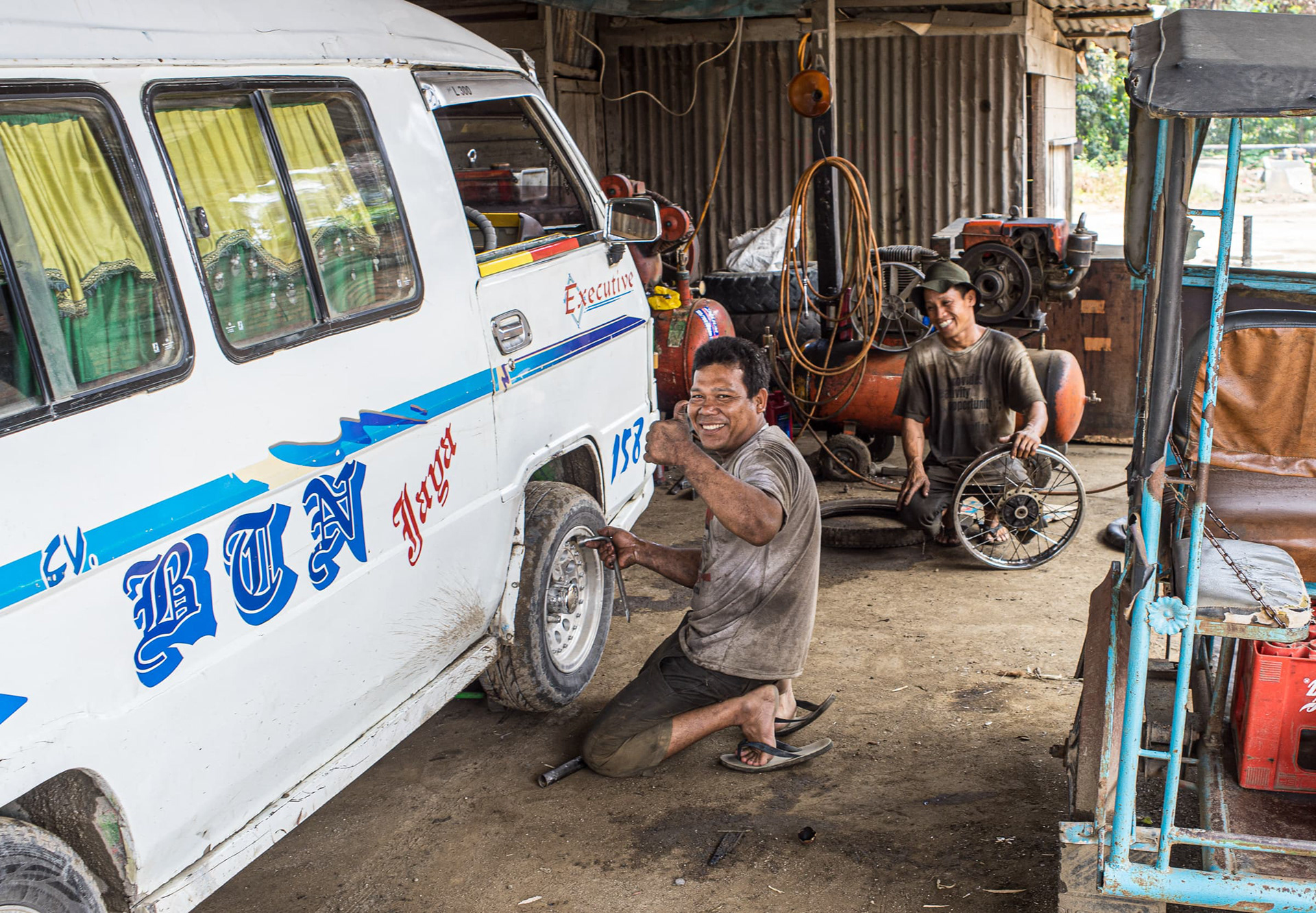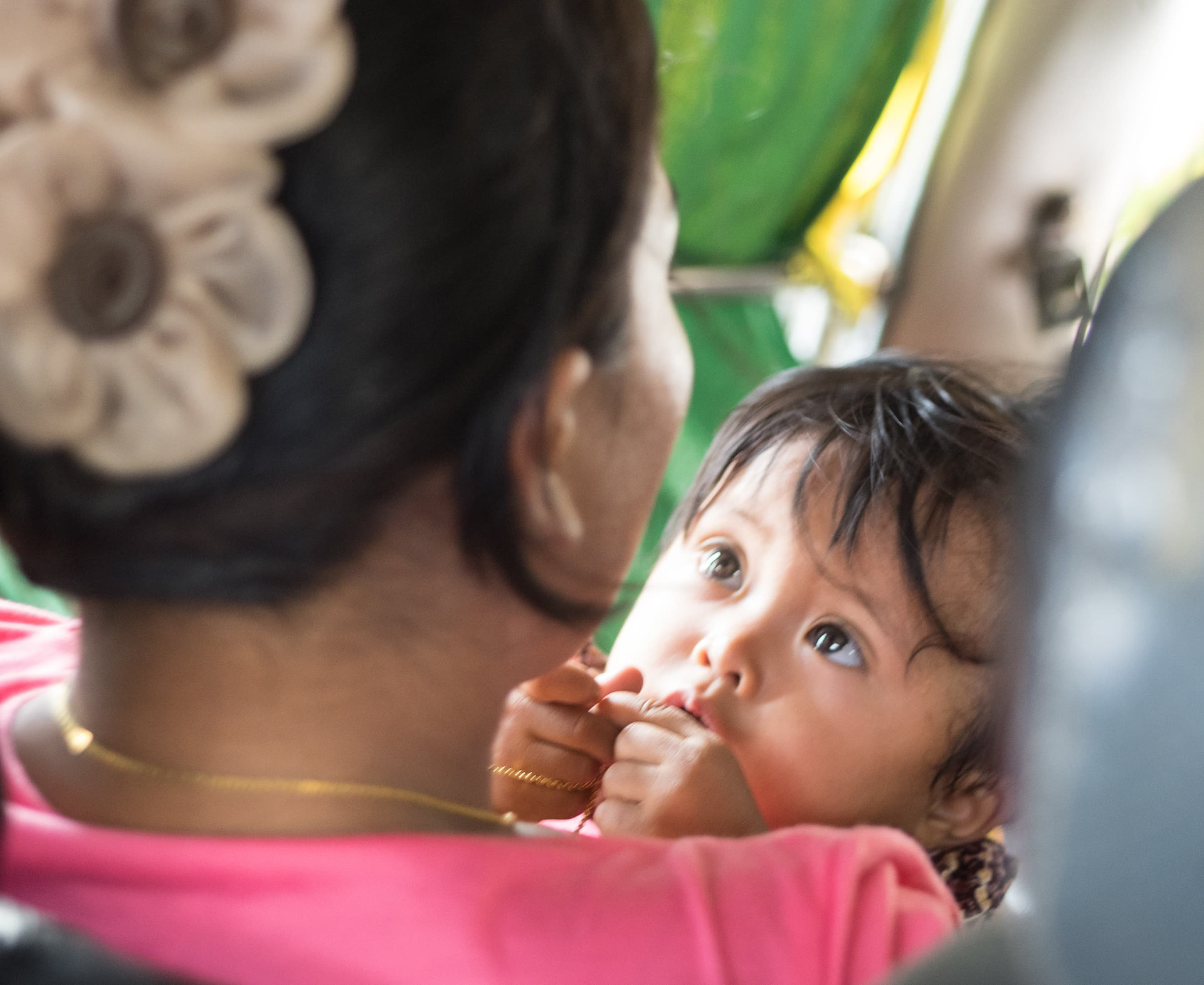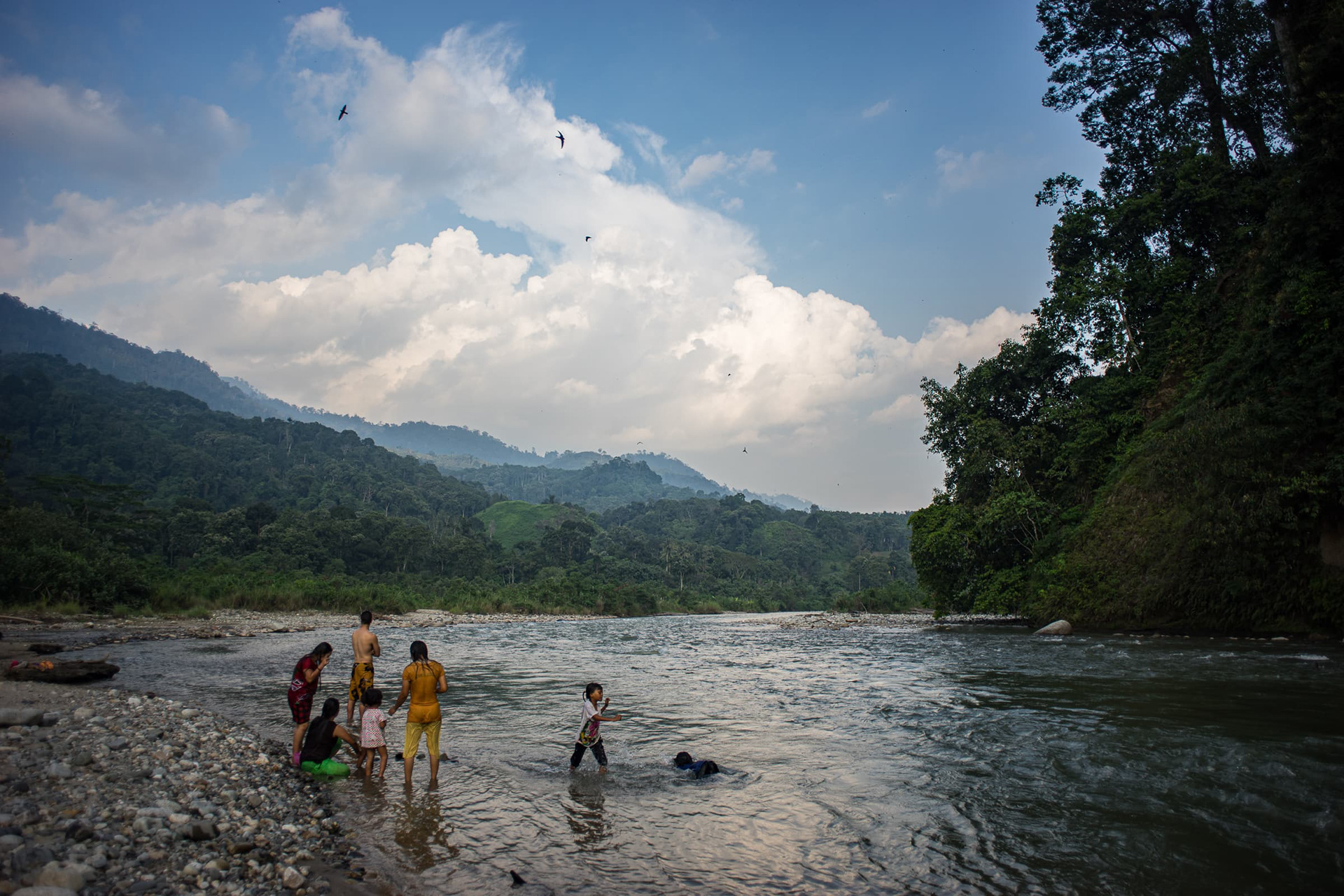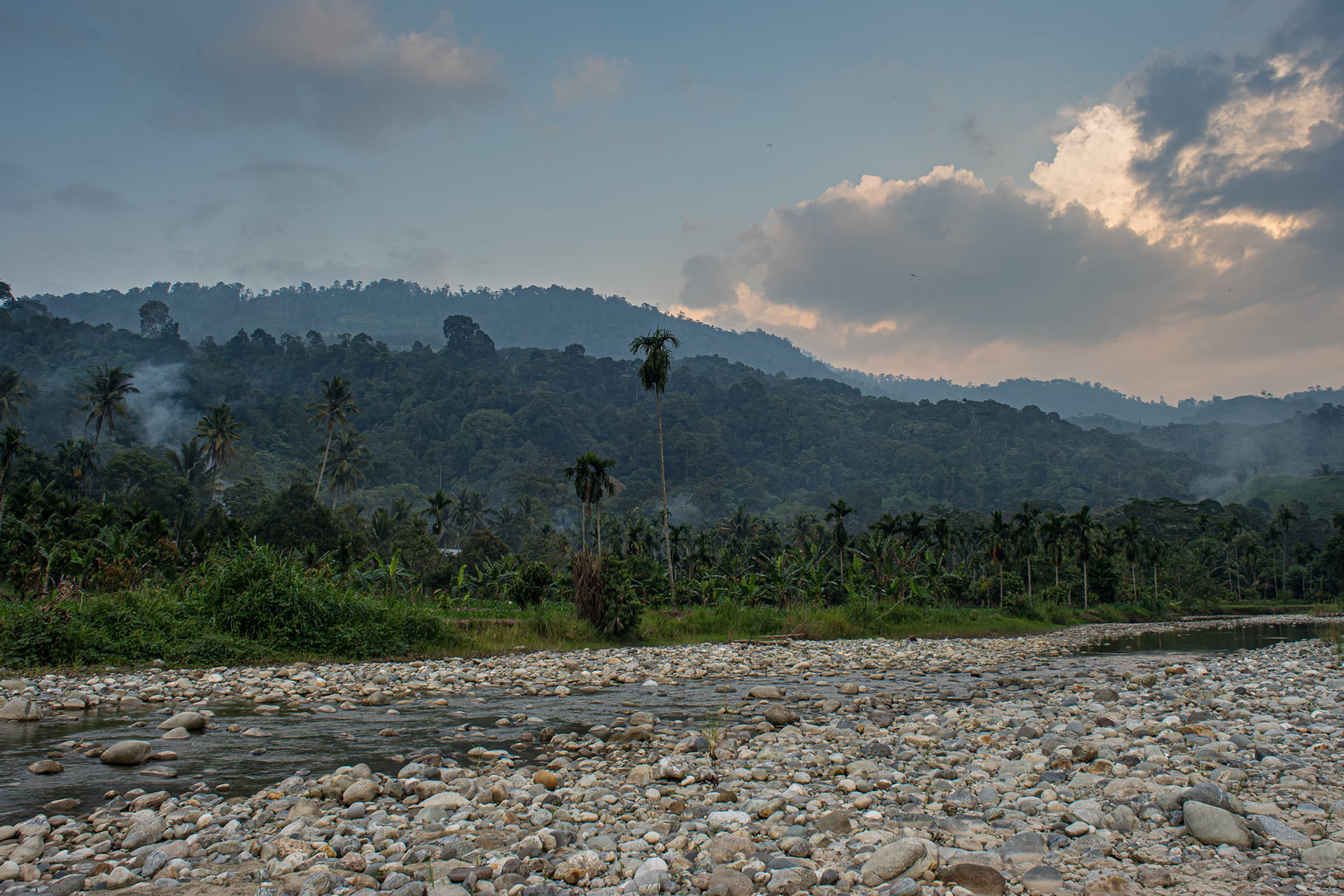The roosters and awake and so are the mosques. From high minarets, through scratchy speakers, the morning prayers descend like rain. Two of them are in competition, and at times the word of Allah comes through jumbled. Où sont les muezzins d'antan?
The hostel is quiet, the main gate to the street still locked. I look for the rising sun, but it’s overcast. So I find a quiet spot to witness the resurrection of life. Three dogs are let out and rush the gate looking for their street-roaming friends. An old gentleman emerges briskly and starts pacing the long courtyard in deliberate laps, a morning ritual no doubt. Sleepy-eyed backpackers appear, sniffing for the coffeepot.
Andrew and I can’t linger. We have a bus to catch this morning and we’d like to explore the market a bit before we leave.
The streets are busy now. Children in cute uniforms are picked up in colorful buses and whisked to their schools. Berastagi is a hub for all sorts of commerce, and the rumble of heavy vehicles is unabated. We dodge the unfamiliar traffic and arrive on the opposite sidewalk unharmed, a minor miracle.
The market is vibrant. Today’s fresh merchandise submits itself to the hard scrutiny of the early-rising housewives. There is something primal about this place, a reminder that everything we eat has been violently uprooted from its natural cycle. Here there is no doubt that 'chicken' is in fact a dead bird. We take in the market with the same curiosity the market looks at us. We get to meet Ringo the monkey, who is shy but curious.
Back at the hostel, we grab a couple of sandwiches to go. They are triple-deckers with local spicy guacamole and tempe. Later on, when I finally unwrap them for lunch and take the first bite, the taste buds erupt in a spontaneous ode to sambal, a first spark of unexpected and enduring love.
We wait for a while for the bus, not sure when it will show up. Several come by, but they are not going to our next destination, Kutacane. When it finally arrives, it’s a colorful minibus that seats about 9 people. We’re lucky they have 2 seats left, otherwise, we’d have to wait for the next one.
Andrew and I squeeze into the middle row. There are two young women and a young girl in the back row. They wear nice clothes, going to a wedding perhaps, or trying to impress the home village. In the front row, there is a man, a woman, and a boy who appears to be around six and who throws up into a bag at regular intervals for the entire duration of the 8 hours trip. I feel badly for the poor lad. In the very front, next to the driver, there are two chronically sleepy women. To my right is an older peasant woman who mostly dozes, sometimes on my shoulder.
Our bags precariously jammed on top of other luggage, we head out. The roads are bad and congested, but our driver is good. We pick up some boxes in a busy intersection of a town with terrible roads, even by Sumatran standards. The driver ties the boxes to the roof with practiced movements. We will deliver these boxes along the way, closer to our destination.
We stop again later, this time for a flat tire. The bus gets a whole new wheel within minutes from one of the roadside shops, as we stretch our blood-deprived legs.
The peasant woman sleeps peacefully throughout it all. Earlier she had her lunch, which she ate with her right hand out of a banana leaf. Once finished, she pulled out a plastic bag with a bit of water, opened it carefully, then reached both her hands out the window of the moving bus and washed them with a splash of the water. She then rolled herself a wad of betel nut, chewed it for a long time, spitting for a while the crimson juice in another bag. Contentedly she drifted to sleep.
After about eight hours of arduous driving, we arrive in Kutacane. We are among the last passengers to be dropped off. The driver is kind enough to go past the terminus and deliver us to our next bus, in the middle of a busy market.
Our next bus is really a pickup truck outfitted with two parallel benches along its bed. There is a DIY roof over the entire bed, and a stadium-sized speaker between the benches, against the cab. The benches are filled with high school girls from a Muslim school. It becomes apparent that this is the local school bus. We quickly negotiate a fee for both of us and the driver motions towards the benches. They look full to me, but in an instant, the girls squeeze together and two places appear on the left side bench. We wrestle our backpacks clumsily into the truck and wedge ourselves in. It’s a tight fit.
In one of the corners, there is an older lady, she looks like she could be a teacher. She smiles indulgently throughout the trip.
I feel a bit out of place among this gaggle of girls with their covered hair, giggles, and furtive glances. The truck is full, it’s hot, and I’m hoping we’ll take off soon. Suddenly another four girls appear. Promptly everyone squeezes tighter, resulting in a net gain of one seat. The first new girl takes it, the other three plop down in the laps of those already seated. There is no awkwardness or hesitation, it’s just how it’s done. Finally, the engine starts. As the truck lurches forward, about four guys who were hanging around hop onto the bumper and grab onto the roof. If this was a VW Beetle we would be record breakers. We drive less than five minutes down the road when a gaggle of boys flags down the truck, which stops. The engineering gears in my brain are working hard to figure out how we could accommodate more people. Before I can compute a solution they scramble like monkeys on top of the roof. I had not thought of that. Now we’re segregated. The chatty boys on top of the roof, the quiet girls and the two dusty tourists in the cab, the four older guys riding the bumper. Another stop and we pick up two more girls, they get to ride in someone’s lap. Then more boys go onto the roof. We ride for a while like this, then slowly, the kids start to drop off. They bang on the roof, the truck stops, they pay the driver with small bills, and we’re off again.
I feel a bit out of place among this gaggle of girls with their covered hair, giggles, and furtive glances. The truck is full, it’s hot, and I’m hoping we’ll take off soon. Suddenly another four girls appear. Promptly everyone squeezes tighter, resulting in a net gain of one seat. The first new girl takes it, the other three plop down in the laps of those already seated. There is no awkwardness or hesitation, it’s just how it’s done. Finally, the engine starts. As the truck lurches forward, about four guys who were hanging around hop onto the bumper and grab onto the roof. If this was a VW Beetle we would be record breakers. We drive less than five minutes down the road when a gaggle of boys flags down the truck, which stops. The engineering gears in my brain are working hard to figure out how we could accommodate more people. Before I can compute a solution they scramble like monkeys on top of the roof. I had not thought of that. Now we’re segregated. The chatty boys on top of the roof, the quiet girls and the two dusty tourists in the cab, the four older guys riding the bumper. Another stop and we pick up two more girls, they get to ride in someone’s lap. Then more boys go onto the roof. We ride for a while like this, then slowly, the kids start to drop off. They bang on the roof, the truck stops, they pay the driver with small bills, and we’re off again.
About an hour later we finally arrive at Ketambe, a small village of 350 or maybe 500 souls, depending on whom you ask. The school bus drops us off in front of the Friendship Guest House, our base for heading into the jungle. It feels good to climb out of the confining truck. It is quiet here, and the air is cleaner. We walk a few steps and Ahmed, the owner of the guesthouse greets us. Go to the river, he says, after we drop off our luggage. My spirit soars. A river is about the only thing that can wash off the dust and grime of the road.
It feels like a blessing to be on the bank of this river. The houses of the village are neither close, nor far, and the few trails of smoke reassure us that dinner will be waiting. The water is swift over the large rocks that puncture its surface, and we’re shy to approach it. Luckily a gaggle of kids appears, and they show us how. They’ve come to the river to bathe, as they do every night.
